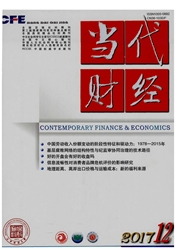

 中文摘要:
中文摘要:
构建可计算一般均衡模型,考察我国财政支出规模与结构变化对宏观经济和居民福利的影响。研究发现:财政支出扩张在短期内对经济刺激明显,但长期效应较差,政策收益低于成本,得不偿失。此外,还会损害居民福利水平。相反,财政支出的结构性调整则能在长期内真正有效促进实际GDP增长,改善就业状况和居民福利水平。无论是规模调整还是结构优化,用于农林牧渔业、公共管理和社会组织、教育三部门的支出效率最高,其次是社会保障等民生支出,而金融业、交通运输和仓储业效率最低。
 英文摘要:
英文摘要:
Through building a computable general equilibrium model, this paper studies the influ- ence of China's fiscal expenditure scale and stmctural changes on the macro economy and residents welfare. The study found that fiscal spending expansion can obviously stimulate the economy in the short run, but in the long run its effects are poor; the policy benefits are lower than costs, the loss outweighs the gain. In addition, the level of resident welfare will be harmed. In contrast, the struc- tural adjustment of financial expenditure is able to be truly effective in promoting real GDP growth and improving employment conditions and welfare of the residents in the long term. Whether to ad- just the size or optimize structure, the highest efficiency of expenditures is those used for the three sectors, i.e. the sector of agriculture, forestry, animal husbandry and fisheries, the sector of public ad- ministration and social organizations, and the sector of education, followed by social security and oth- er livelihood expenses, while the efficiency in the sectors of financial industry, transportation and warehousing industry is the lowest.
 同期刊论文项目
同期刊论文项目
 同项目期刊论文
同项目期刊论文
 期刊信息
期刊信息
